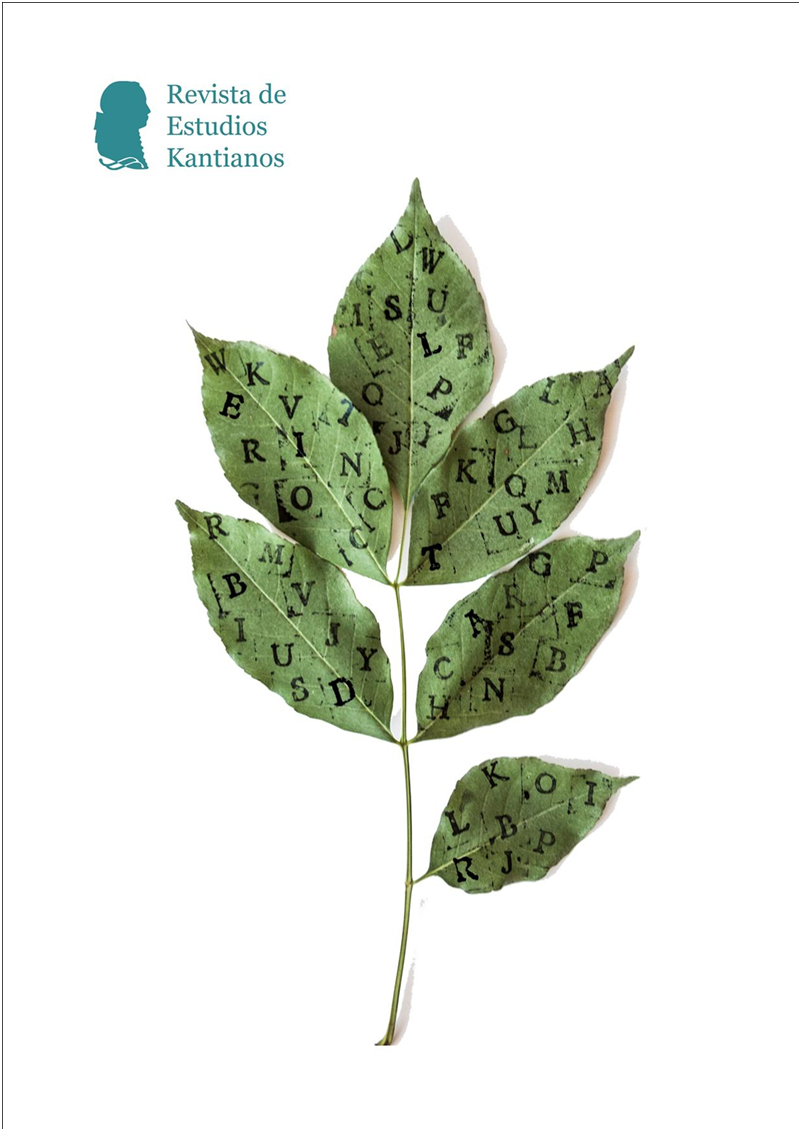La deducción del imperativo categórico en la Ética de Fichte
DOI:
https://doi.org/10.7203/REK.9.1.26169Keywords:
Filosofía transcendental, ética, principio moral, deducción genética, validez moral Abstract
Abstract
El artículo investiga la cuestión de la validez moral. Analiza primero la explicación kantiana de la estructura moral a priori que permite entender la posibilidad de la ley moral como factum de la conciencia. A continuación, el artículo aclara el sentido de su deducción genética en Fichte. Se exponen los supuestos lógicos de la Doctrina de la Ciencia así como el método de la reflexión abstractiva que usa el filósofo para deducir genéticamente la ley moral desde el principio del Yo. Esta exposición permite destacar los aspectos más originales de la fundamentación fichteana de la moral.
 Downloads
Downloads
 References
References
Fuentes primarias
Fichte, J. G. (1964–2012). Johann Gottlieb Fichte: Gesamtausgabe der bayerischen Akademie der Wissenschaften. Frommann-Holzboog.
Fichte, J. G. (1971). Fichtes Werke. Walter de Gruyter.
Fichte, J. G. (2005). Ética. Akal.
Kant, I. (1900–). Kants Gesammelte Schriften Hrsg. Vol. 1–22 Academia prusiana de las ciencias de Berlín, vol. 23 Academia alemana de las ciencias de Berlín, a partir del vol. 24, Academia alemana de las ciencias de Gotinga. Walter de Gruyter.
Kant, I. (1974). Kritik der praktischen Vernunft. Grundlegung zur Metaphysik der Sitten. In Werkausgabe, vol. VII. Suhrkamp.
Fuentes secundarias
Allison, H. E. (2020). Kant’s Conception of Freedom: A Developmental and Critical Analysis. Cambridge University Press.
Beiser, F. (2002). German Idealism: The Struggle against Subjectivism 1781 – 1801. Harvard University Press.
Frank, M. (1997). Unendliche Annäherung. Die Anfänge der philosophischen Frühromantik. Suhrkamp.
Henrich, D. (1967). Fichtes ursprüngliche Einsicht. Klosterman.
Henrich, D. (1973). Der Begriff der sittlichen Einsicht und Kants Lehre vom Faktum der Vernunft. En Kant. Zur Deutung seiner Theorie von Erkennen und Handeln (pp. 223–254). Kiepenheuer & Witsch.
Henrich, D. (1982) Ethik der Autonomie. En Selbstverhältnisse (pp. 6–56). Reclam.
Lauth, R. (1965). Zur Idee der Transzendentalphilosophie. Pustet Verlag.
Lauth, R. (1971). Genèse du Fondement de toute la Doctrine de la Science de Fichte. Archives de Philosophie, 34(1), 51–79.
Navarro, B. (1975) El desarrollo fichteano del idealismo transcendental de Kant. FCE.
Schönecker, D. (2013). Das gefühlte Faktum der Vernunft. Skizze einer Interpretation und Verteidigung. Deutsche Zeitschrift für Philosophie, 61, 91–107.
Siemek, M. J. (1984). Die Idee des Transzendentalismus bei Fichte und Kant. Meiner.
Stolzenberg, J. (1986). Fichtes Begriff der intellektuele Anschauung: die Entwicklung in den Wissenschaftslehren von 1793/94 bis 1801/02. Klett/Cotta.
Turró, S. (2019). Fichte. De la conciencia al absoluto. Aula de Humanidades/Unisalle.
Ware, O. (2014). Rethinking Kant’s Fact of Reason. Philosophers’ Imprint, 14(32), 1–21.
Wolff, M. (2009). Warum das Faktum der Vernunft ein Faktum ist. Auflösung einiger Verständnisschwierigkeiten in Kants Grundlegung der Moral. Deutsche Zeitschrift für Philosophie, 57(4), 511–549.
Downloads
Published
How to Cite
-
Abstract157
-
PDF (Español)51
Issue
Section
License
![]()
The authors who publish in this journal agree with the following terms:
- The authors retain their copyright and guarantee to the journal the right to be the first to publish the work and to license it under a Creative Commons Attribution License that allows others to share the work with an acknowledgement of its authorship and the initial publication in this journal.
- Authors may separately establish additional agreements for non-exclusive distribution of the version of the work published in the journal (for example, placing it in an institutional repository or publishing it in a book), with acknowledgement of its initial publication in this journal.
- Authors are allowed and encouraged to disseminate their work electronically (e.g., in institutional repositories or on their own website) before and during the submission process, as this can lead to productive exchanges as well as earlier and greater citation of published work (see The Effect of Open Access).








